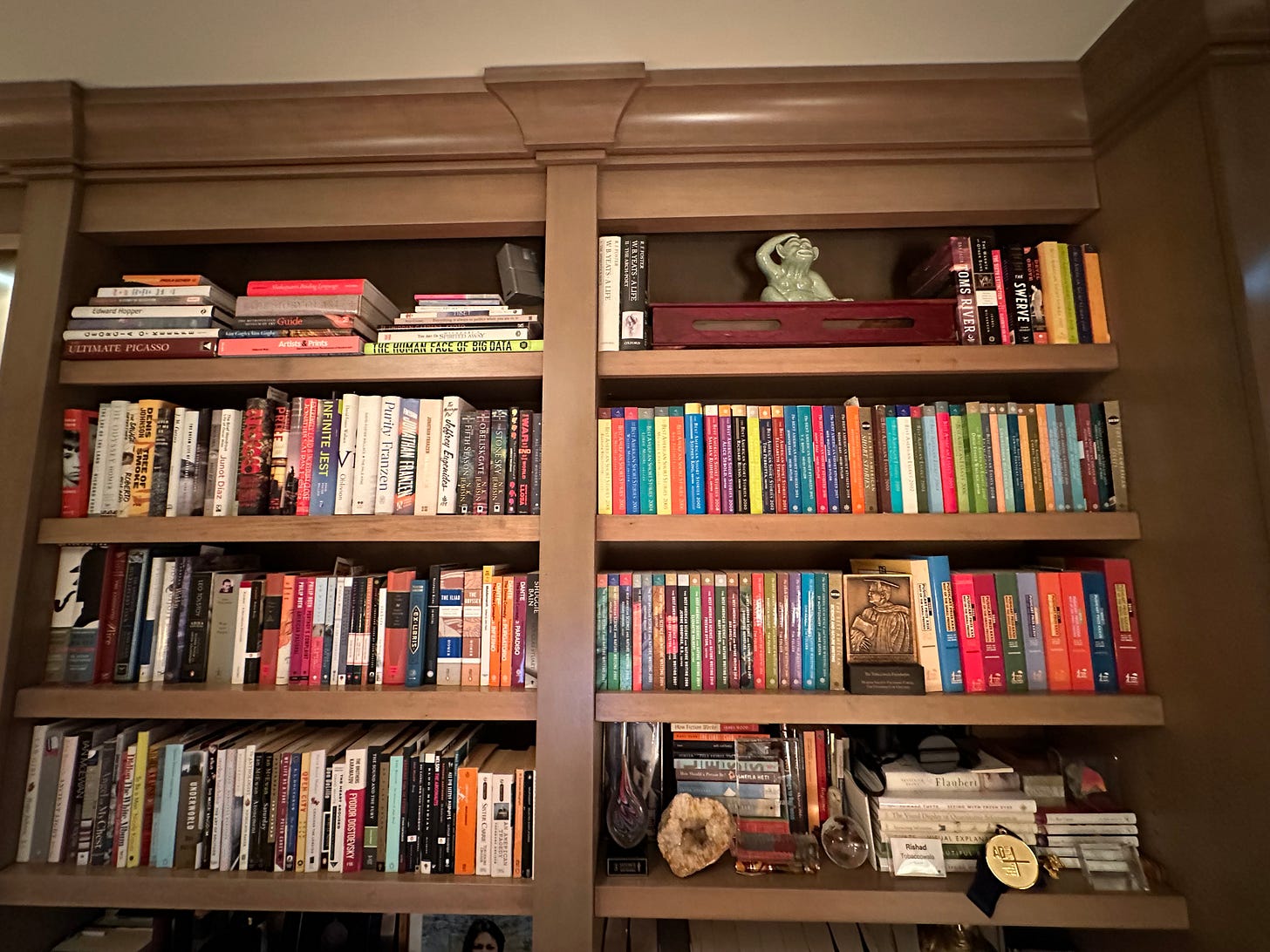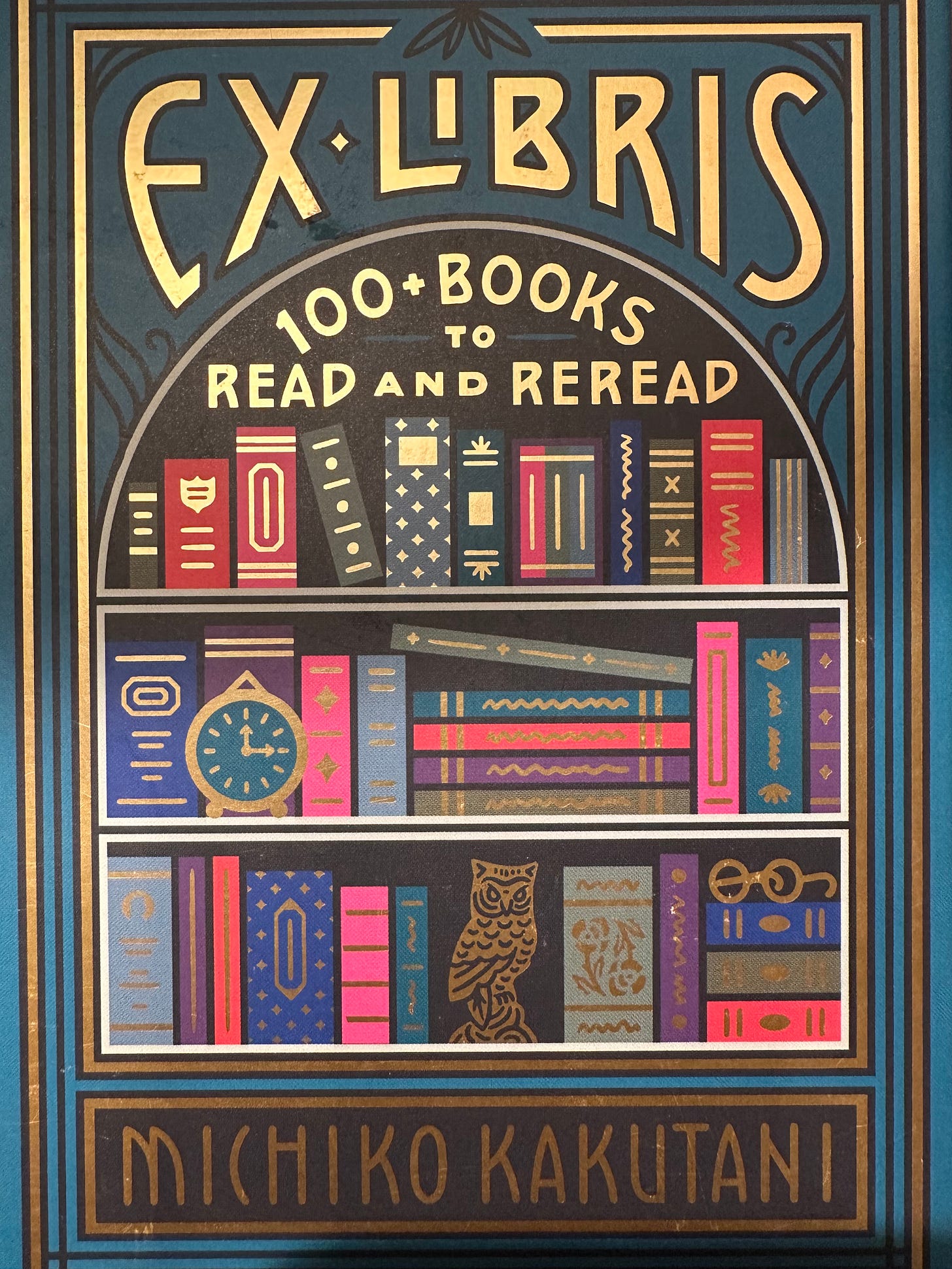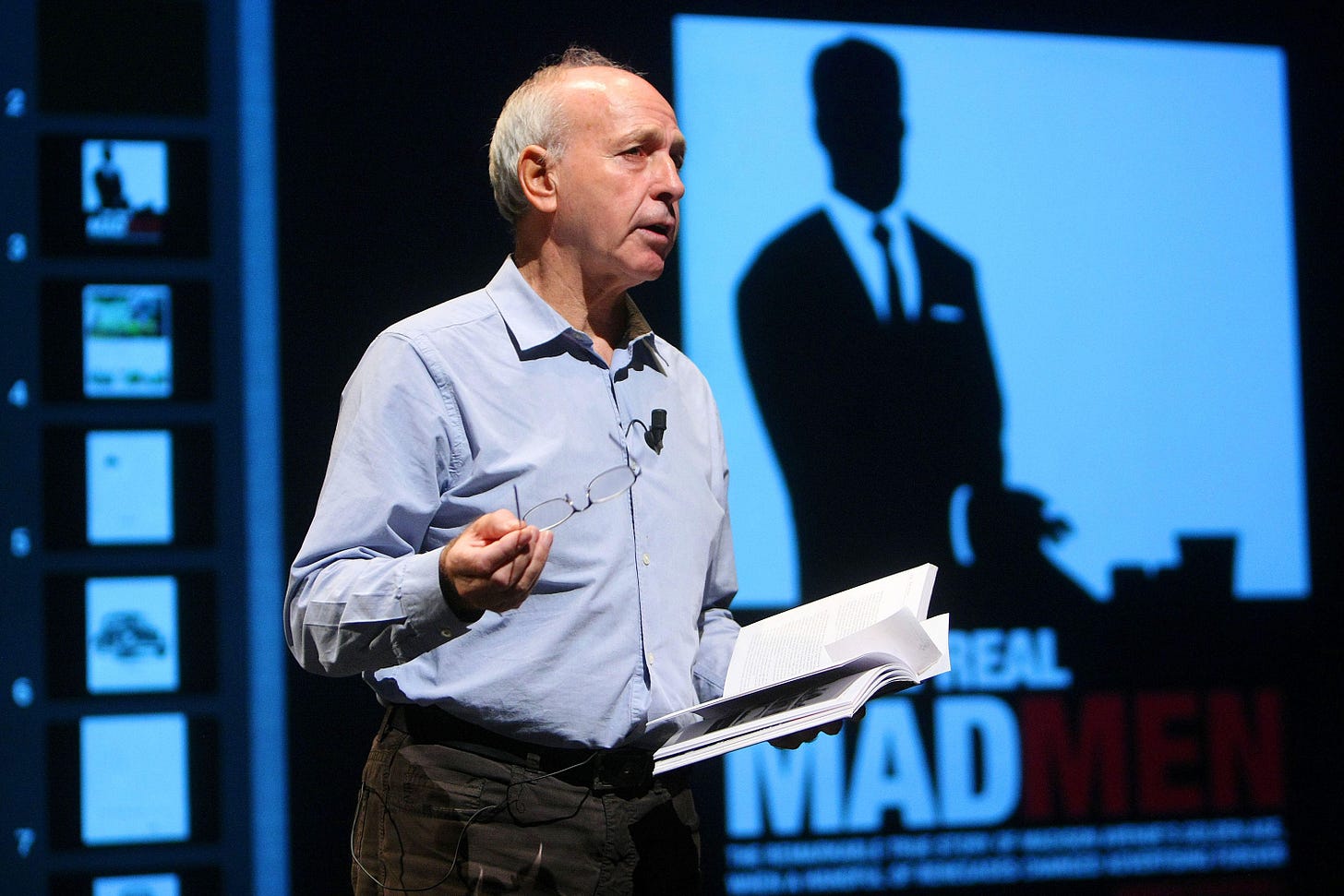On Reading.
The Future Does Not Fit in the Containers of the Past. Edition 143.
Photo “ The Reader” by Alex Timmermans
Today’s Large Language Models (LLM’s) which drive AI advances like GPT learn and grow through “reading”.
They ingest large data sets and then connect dots, “see” patterns and create relationships while optimizing against learning goals.
“Reading” grows their capabilities which allow them to “write” their responses. We respond with shock or awe when we read what “they” write.
Writing and therefore being able to pass on knowledge from generation to generation and accessing such knowledge via reading is what has enabled humanity to grow.
Even today in a world of multi-media such as movies and games or wonderful Broadway works like “Hamilton” the key is the script and the story.
It has been said that “stories are data with a soul”
Today, GPT reads widely and then observes our reactions to help us grow (though like any reader who switches between genres they can move from non-fiction to highly speculative fantasy disconnected from reality!)
These days we hear people saying the machine is “hallucinating” but for us humans too “reading is a form of dreaming” which takes us out of ourselves.
The Case for Reading.
Reading allows us to be other people and a good writer makes us inhabit another character.
They make us better understand others and better understand ourselves.
David Foster Wallace wrote “ Good writing should help readers be less alone.”
Often a good book will give you “you” as the writer evokes what you feel better than you have the words to express the same thing..
It makes us less lonely and lets us live simultaneously in yesterday, today and tomorrow, and inhabit places here and there, becoming people that are free from our physical constraints.
“Writers have not taken us anywhere but they have taken us everywhere”
George Martin wrote “A reader lives a thousand lives before he dies . . . The man who never reads lives only one.”
Reading also changes us.
“The best books are like surgeons. They change you but you do not remember them and they do not leave an external mark.” but even then “A great piece of writing is one that you feel on your skin.”
“A story is simply a sequence of language that produces a chemical reaction in our bodies.”
But they have a unique long last effect because while “Drugs get flushed from our system but not the best stories.”
The Case for Books.
Today due to the Internet and enabling platforms from Substack to Wordpress everyone can access more voices from more places with more diverse backgrounds than ever before.
Some of the best reading is self-published and can be obtained far from the big publishing houses of the West.
Short form or long form. Listened to or in the reflected glow of a Kindle. Words by themselves or a piece of writing encrusted with links and multi-media can all transform.
But one great way but clearly not the only way to read is through an ancient “ interface” of a physical soft cover or hard cover book.
While it cannot illuminate itself allowing you to read under starlight or allow one to hold a thousand books in the palm of your hand there is something tangible, mystical and spiritual about a physical bound book.
The utter simplicity.
Black symbols on a white background which create an alchemy of feeling, unleash our imagination and spur growth in their own unique way distinct to each reader. Personalized magic that all modern tech seeks to replicate but has not yet.
They might one day if they learn from reading.
Less is more.
Life is infused with meaning because of the reality it ends.
Data is not wisdom.
Humans are unpredictable, inexhaustible and illogical .
One could do no better than watch Chip Kidd speak about the “thinginess of books” to make you newly appreciate these objects in which knowledge has passed down the centuries to intersect with us sometimes so powerfully that a book can leave us thinking “I must change my life!”
Many are lucky to own hundreds of books often decades old. Many yellowing. Most marked up with exclamation marks reinforcing the writer or quarrels with the author in angry scribbles in the margin.
Some tattooed with stains of spilled food or some mishap on a plane or train or other accelerating or braking vehicle from a journey in the misty past.
Artifacts encrusted with meaning.
Citadels to memories.
When we revisit them like many readers we wonder why we underlined the lines we did.
The book did not change.
We did.
“Life is a river and we cannot step into the same book twice”
Lots of things in life change us. Memorable experiences. Transformative relationships. Amazing people.
But the books we read impact us deeply too.
As a reader wrote “ Its only reading. By which I mean it’s everything”.
Rishad Tobaccowala is author of the best selling “Restoring the Soul of Business: Staying Human in the Age of Data” published by HarperCollins which has been prescient about every thing that has happened in the three years since it was published. Rishad is working on his next book called “Re-Thinking Work” to be published in Fall of 2024 by McGraw-Hill. More about Rishad here: https://rishadtobaccowala.com/
Mad. Bad. And Creatively Dangerous to Know? On the latest What Next? Rishad revisits Madison Avenue’s ‘creative revolution’ with Andrew Cracknell (former agency ECD and author of “The Real Mad Men: The Renegades of Madison Avenue and the Golden Age of Advertising”) to ask, “what can we all learn from the original Mad Men (and women) of that golden age of advertising?”





I love your column as a futurist, but please write more on reading and books that have altered your life.
As a lover of books and a person who answers “reading” when asked what my hobby is, you have written a truly sublime column. Sharing the joy! Thanks!